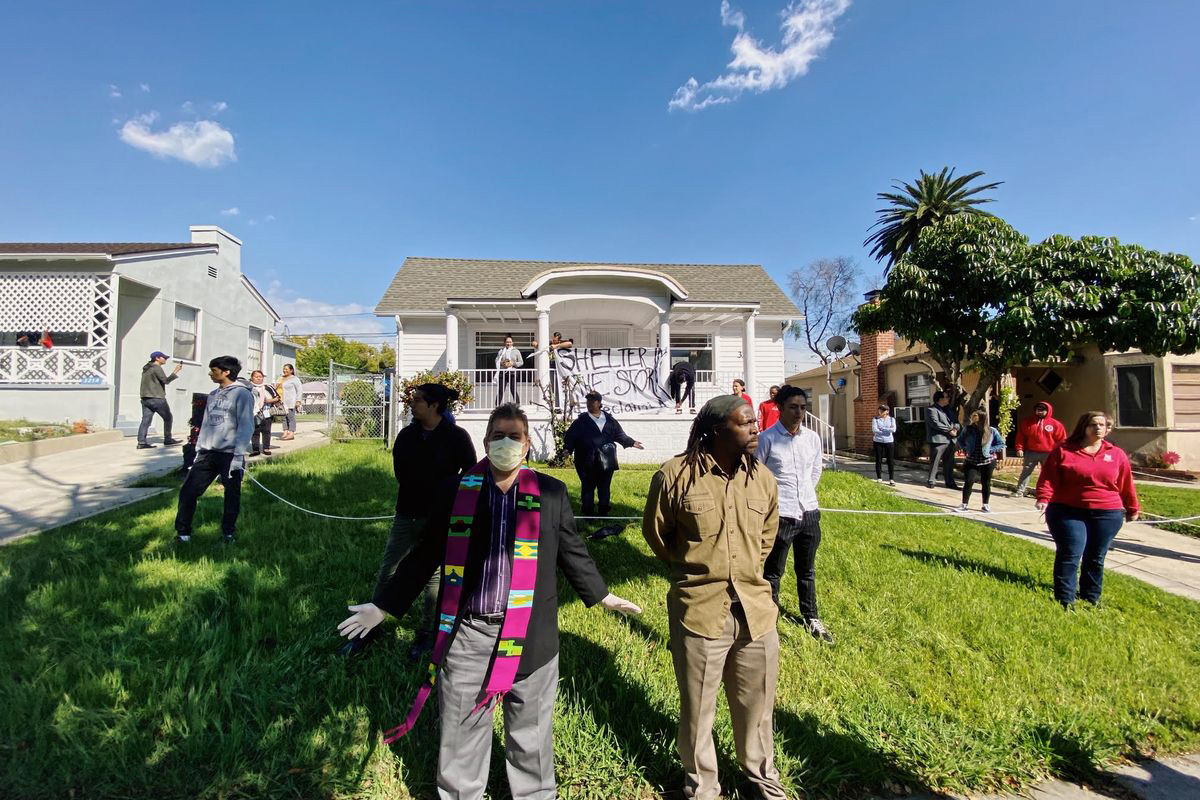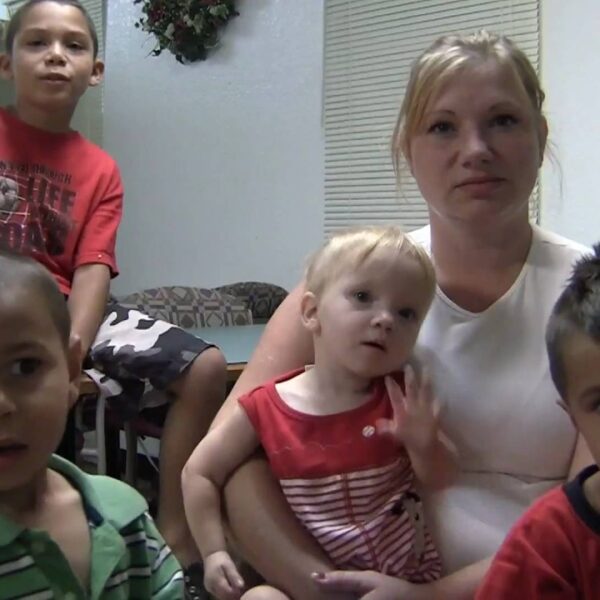Sometimes, in the face of shocking inequality, an unconventional form of protest is most effective. If it’s dramatic enough, it draws attention and causes others to think critically. A group of protesters in El Sereno, California called Reclaiming Our Homes did just that. They also did it at a fitting, if dangerous time—in March, just as the pandemic was starting. It called attention to the problem of housing inequality as well as its increasing urgency.
These protesters occupied 12 of 163 homes left vacant for decades. The homes are owned by CalTrans—a company that once sought to expand the 710 freeway. In the 50s, 60s, and 70s, it bought hundreds of homes for this purpose. However, the freeway expansion was rejected by the community. Instead of using the homes for good, or doing anything with them at all, 163 homes sat vacant all these years.
The families who occupied the homes—two mothers and their children, along with a 64-year-old—spoke about the cramped and unsafe living conditions they’d previously endured. They had also experienced homelessness prior to moving into the CalTran homes. These families were soon joined by others. Advocates gathered on the front lawns of the houses to express their support and hear their stories.
As the months went by, the movement faced challenges. At one point, the Department of Water and Power shut off utilities to several of the properties in what seemed to be an effort to get the protesters out. Many argued against what the protesters did, calling them “squatters.”
However, the movement was successful. It garnered national attention, and according to the group’s Facebook page, several protesters have now moved legally into state-owned housing.
Was it Protesting or Squatting?
It’s tempting to look at these families and raise an eyebrow at their decision to illegally occupy homes. However, in desperate and dangerous times, we need to look deeper at whether such actions help more than they hurt.
There are several reasons protesters made the decision to occupy the homes. First, the homes are state-owned. During this public health crisis, the state has a responsibility to utilize its resources to care for its people. The CARES Act was passed for this very reason, although homeless people and people in poverty didn’t benefit much from it. Living on the streets has always been dangerous, but it’s especially dangerous now.
By allowing the homes to sit vacant, the city send a clear message: that it was not willing to utilize all of its resources to help care for its residents. Reclaiming Our Homes sent a counter message: the state should not allow people to suffer if there’s anything it can do about it.
This sort of life-or-death injustice requires bold action, and for these protesters who had so little to lose, it was worth the risk.
What Did the Protest Accomplish?
At the time of moving in, the protesters issued a list of demands. Given this happened in March, the items on the list seem prophetic. Many ended up happening—a rent moratorium, release of inmates, and opening up hotels for homeless people. This is not coincidence. These same things were being called for on a national level, and eventually, lawmakers listened.
The protest drove home several clear points:
1. Protests work—especially unconventional ones.
There’s nothing wrong with standing in front of a state capitol and holding signs. But protests like Reclaiming Our Homes’ was bold and creative. It found an angle that hadn’t been explored yet—taking what should be ours and making it ours. The action made for a good story, and that coverage in the media drew more attention than any standard protest would.
2. Some things really do belong to the people.
CalTrans is a state transportation agency, which means those homes were owned by the state. However long ago the homes were bought, they were at one point bought with taxpayer dollars. Taxpayers never saw the fruits of that investment—a freeway extension—and so the money was wasted. These protesters made an especially powerful point by taking back that investment in their community.
3. There is a general lack of compassion for homeless people.
We knew this already, of course, but further evidence can still spur us to action. COVID-19 has laid bare our society’s extreme prejudice against the poor. The government has told us what is safe, and that is to socially distance, practice good hygiene, and wear a mask. It has no answers for the many people who don’t have a home to isolate in, a shower to use, or money with which to buy a mask and keep it clean. It doesn’t have a plan to use what it has to provide for people most in need.
How You Can Help
Not all of us are in a position or have the ability to take such a dramatic action, and that’s okay. Protesters take strong actions to speak for others who aren’t able to protest. There are still many ways we can support them and their causes.
Speak out against injustice wherever you see it. When you see others speaking out, lift them up and help spread their message. Movements like Reclaiming Our Homes rely on an audience, so be that audience. If there is anything you can do—for example, these protesters at one point asked people to create a barrier against the city’s utility company—go for it.
Also, remember your values and stick to them. Be compassionate and empathetic. Housing rights and personal safety should always be our society’s top priority. In the absence of action as strong as Reclaiming Our Homes’, at least remember poor and homeless people have just as much a right to shelter as anyone. In whatever ways you can, fight for those values and support others in their battles, too.













